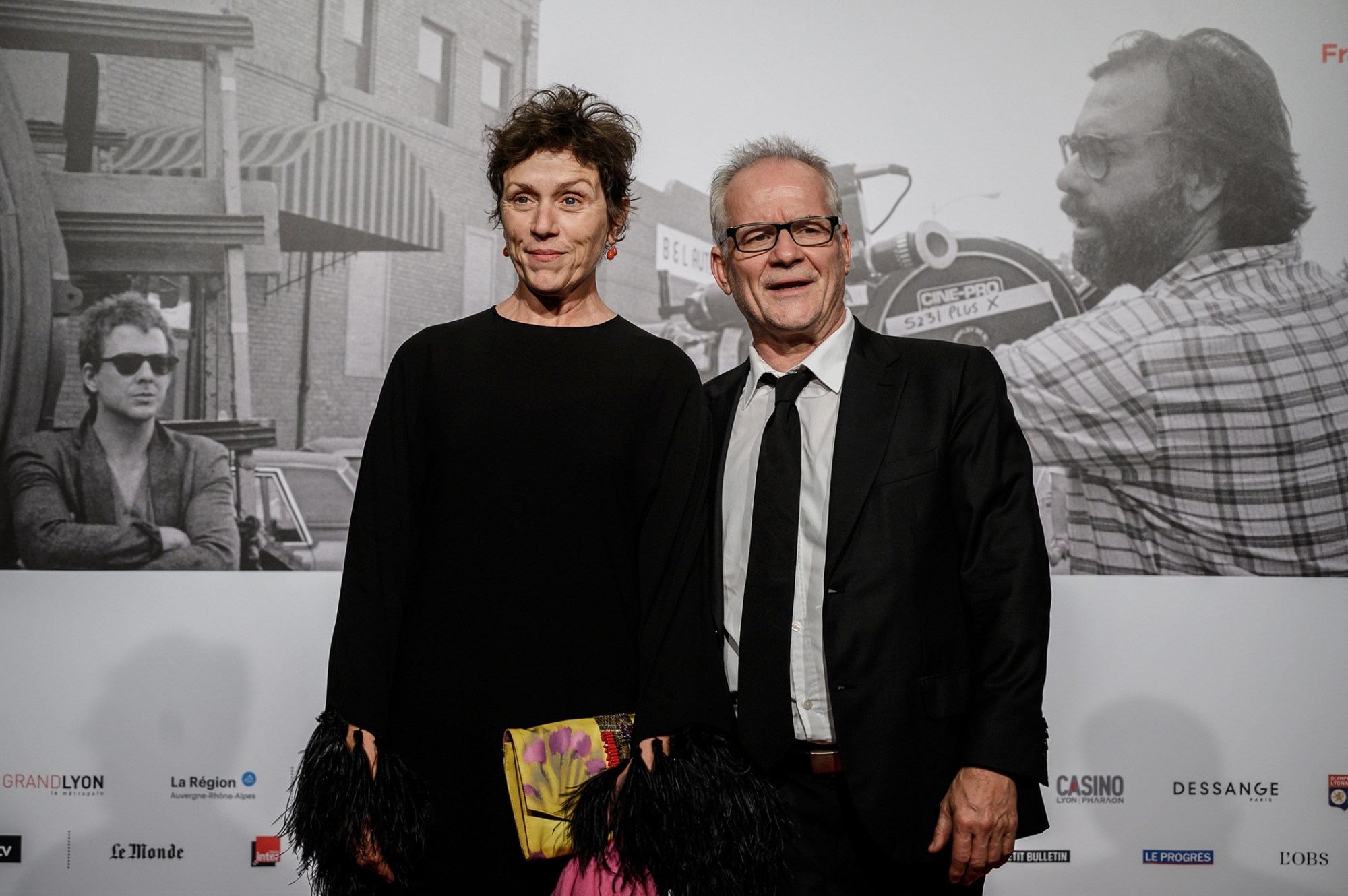
- Festivals
Lumière Lights up Lyon
The Lumière film festival celebrated its 10th birthday in Lyon, France and did so one year ahead of the 125th anniversary of the invention of cinema itself by its namesake brothers in this very town, in 1894. The idea behind the Thierry Frémaux-directed festival is, in fact, to celebrate film in the very birthplace of the medium: the workshop where the two industrialist brothers developed the first camera capable of producing moving images still stands and is now part of the Lumière Institute complex housing screening facilities, an archive, book store and the stately Lumière mansion which today houses the Lumière museum and doubles as festival headquarters (future plans also include a larger, more modern, Renzo Piano-designed cinema museum to be built).
The focus of the festival is classic movies – or “heritage films” as the organizers define them. But to call the Lumière a showcase for old movies would be wildly reductive. The Institute’s emphasis is on restoring and preserving film heritage, that much is true, but the guiding philosophy here goes much beyond maintaining a film archive. As the billboards plastering the city announce: “Film lives and re-lives!” here and the guiding principle is to treat movies like lasting works of art, which don’t just live during the opening theatrical run and maybe a couple of years beyond that before a permanent twilight of oblivion of late-night re-runs on specialty cable and DVD collections. Instead, films are considered more akin to literature, where books are permanently experienced and beloved and introduced to new generations and constitute a culture d’image in their natural context: theatrical screenings. The winning formula in Lyon has been blending the passion of hard core cinephiles and academics with the pure enjoyment of rediscovering classics on the big screen in upwards of twenty theaters which regularly fill to capacity with enthusiastic fans.
The theatrical exhibition has of course been a bone of contention between streaming platforms purveying movie viewing on private screens and French exhibitors who have pursued a hard line in favor of theatrical exhibition with an exclusive window. The feud has effectively imposed a ban on Netflix productions at the country’s flagship festival in Cannes, but in Lyon, Frémaux, who ironically directs both festivals, has more leeway which explains why the festivals’ most anticipated screening this year happened to be a Netflix production. Martin Scorsese’s The Irishman filled the Lyon Auditorium to the rafters making a triumphant stop between its European première in London and a screening at the Rome Film Festival.
Scorsese is, of course, an old Cannes acquaintance of Frémaux’s, as are many of the other Hollywood luminaries who have made stops in Lyon through its first decade, like Quentin Tarantino, Jane Fonda, Milos Forman, Ken Loach, Catherine Deneuve, Pedro Almodóvar, Guillermo del Toro, Clint Eastwood, and many others. Each year the festival bestows the Lumière prize to a film maker honored with a retrospective. This time it was another “New Hollywood” great with strong French ties: Francis Ford Coppola, who also reprised the master class he held in Bologna last June.
Master classes were also held by Marco Bellocchio, Gael García Bernal, Donald Sutherland, and Frances McDormand. The latter actress furnishing particularly compelling anecdotes about the career which has established her as a leading practitioner of her craft as well a as a relentless advocate for an independent and resolute female gaze in film (her stories of room mating a tiny Hollywood apartment with the brothers Coen and friend Sam Raimi, while trying to promote Blood Simple regaled the audience.)
Even as Lumière is proof of the historic ties between France and American movies, the festival, whose president is French director Bertrand Taverniér, is obviously also a celebration of home grown talents like Catherine Deneuve, Gérard Depardieu, (both past prize winners) Claude Lelouche, Jean Paul Belmondo and Alain Delon. This year the French honoree was Daniel Auteuil whose unassuming career has enriched the past three decades for French films and was the subject of a festival retrospective. His latest effort, Nicolas Bedos’ La Belle Epoque, was this year’s opening film.
As per tradition, that first screening is held following the opening ceremony in the cavernous Hall Tony Garnier, the city’s ex abattoir, for an audience of 5,000 after a spectacular confetti drop – somehow combining love of movies with the excitement of an NBA final.
And yet the true pleasure of this festival remains seeing audiences of all ages fill the theaters day after day, as much for the director’s cut of Apocalypse Now as for obscure silent films. Among the latter category, several gems coming from world collections was The First Year (1926) in a print restored by New York’s MOMA, the Film Foundation and the Hollywood Foreign Press Association as part of our film preservation program. It is the second film the HFPA presents in Lyon after last year’s screening of The Red Shoes, part of the association’s partnership with Institute Lumière which includes the restoration of hundreds of Lumière Brothers one-reelers which represent the very DNA of cinema.
The enthusiastic reception of the film by the audience encapsulates the genius of this festival which combines movies from all over the world and from all ages and connects them to contemporary audiences, letting movies “live and re-live”. It’s an example that bears noting and repeating.

